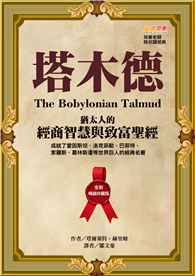After Britain’s Abolition of the Slave Trade Act of 1807, a squadron of Royal Navy vessels was sent to the West Coast of Africa tasked with suppressing the thriving transatlantic slave trade. Drawing on previously unpublished papers found in private collections and various archives in the UK and abroad, this book examines the personal and cultural experiences of the naval officers at the frontline of Britain’s anti-slavery campaign in West Africa. It explores their unique roles in this 60-year operation: at sea, boarding slave ships bound for the Americas and ’liberating’ captive Africans; on shore, as Britain resolved to ’improve’ West African societies; and in the metropolitan debates around slavery and abolitionism in Britain. Their personal narratives are revealing of everyday concerns of health, rewards and strategy, to more profound questions of national honour, cultural encounters, responsibility for the lives of others in the most distressing of circumstances, and the true meaning of ’freedom’ for formerly enslaved African peoples. British anti-slavery efforts and imperial agendas were tightly bound in the nineteenth century, inseparable from ideas of national identity. This is a book about individuals tasked with extraordinary service, military men who also worked as guardians, negotiators, and envoys of abolition.
| FindBook |
有 1 項符合
Envoys of Abolition: British Naval Officers and the Campaign Against the Slave Trade in West Africa的圖書 |
 |
Envoys of Abolition: British Naval Officers and the Campaign Against the Slave Trade in West Africa 作者:Wills 出版社:Liverpool University Press 出版日期:2023-03-01 語言:英文 規格:平裝 / 256頁 / 普通級/ 初版 |
| 圖書館借閱 |
| 國家圖書館 | 全國圖書書目資訊網 | 國立公共資訊圖書館 | 電子書服務平台 | MetaCat 跨館整合查詢 |
| 臺北市立圖書館 | 新北市立圖書館 | 基隆市公共圖書館 | 桃園市立圖書館 | 新竹縣公共圖書館 |
| 苗栗縣立圖書館 | 臺中市立圖書館 | 彰化縣公共圖書館 | 南投縣文化局 | 雲林縣公共圖書館 |
| 嘉義縣圖書館 | 臺南市立圖書館 | 高雄市立圖書館 | 屏東縣公共圖書館 | 宜蘭縣公共圖書館 |
| 花蓮縣文化局 | 臺東縣文化處 |
|
|
圖書介紹 - 資料來源:博客來 評分:
圖書名稱:Envoys of Abolition: British Naval Officers and the Campaign Against the Slave Trade in West Africa
|











